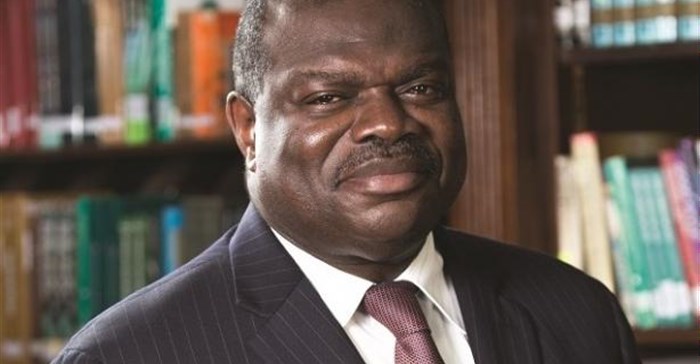Trans-continental university research strengthened

Aryeetey has been appointed as the Secretary-General of the African Research Universities Alliance (ARUA), established in 2015. He will assume his position this month, August 2016.
“The production of knowledge in research intensive universities is a vital requirement for the continent to assume appropriate levels of control over its future and to assert itself as a powerful global force,” said Aryeetey.
“There are wonderful opportunities in our local context for contributing to global knowledge. Examples of these include the Square Kilometre Array (SKA) hosted on the continent, research initiatives to combat climate change from an African perspective, shared public health training and the study of health solutions that can only be optimally understood and answered by researchers based in Africa,” continues Aryeetey.
Dr Max Price, co-initiator of the alliance and vice-chancellor of the University of Cape Town, says: “We welcome the appointment of Professor Aryeetey who will continue to drive collaboration between Africa’s research-intensive universities.”
Co-initiator of ARUA and vice-chancellor of the University of the Witwatersrand, Professor Adam Habib concurs: “Through ARUA, Professor Aryeetey will galvanise the strengths of research-intensive universities to compete in the global knowledge economy through innovation and technology. We support him in these efforts and encourage all partner universities to do the same.”
A professor of economics, Aryeetey will oversee the activities of the Consortium from his base in Ghana. His main responsibility is to establish relations with key stakeholders and funders of research at African universities and to advocate for the importance of research-intensive universities for the continent.
He brings a rich set of expertise having held numerous academic and leadership positions locally and abroad. He is a member of the Governing Council of the United Nations University, a think-thank of the United Nations systems.
A former director of the Africa Growth Initiative of the Brookings Institution, Aryeetey, has held academic posts at the School of Oriental and African Studies, Yale, Cornell and Swarthmore universities. He obtained a doctorate for his work in political economy with a focus on fiscal decentralisation and regional development from the University of Dortmund in 1985.
Aryeetey’s research focuses on the economics of development with interest in institutions and their role in development, regional integration, economic reforms, financial systems in support of development and small enterprise development. He has published three books, seven edited volumes, and numerous journal articles. Among his publications are ‘Financial Integration and Development in Sub-Saharan Africa’ and ‘Economic Reforms in Ghana: the Miracle and the Mirage’.
Strategic alliance
ARUA is a strategic alliance of research intensive universities, which bring together their distinctive fields of expertise, to achieve complementary and coordinated programmes of research and training. The Consortium will bring together distinctive fields of expertise to achieve complementary and co-ordinated programmes of research and training, including addressing the key development priorities of the African continent.
Sixteen research-strong partner universities are represented in the Alliance, with six from South Africa, including: Nigeria: University of Lagos, University of Ibadan, Obafemi Awolowo University; Ghana: University of Ghana; Tanzania: University of Dar es Salaam; South Africa: University of the Witwatersrand, University of Stellenbosch, University of Pretoria, Rhodes University and the University of Cape Town, University of KwaZulu-Natal; Kenya: University of Nairobi; Rwanda: University of Rwanda; Senegal: Université Cheikh Anta Diop; Uganda: Makerere University; and Ethiopia: University of Addis Ababa.
There are five challenges confronting African universities that ARUA will seek to address:
- The complex economic, social and development problems of the continent that cannot be addressed by institutions working in isolation.
- Transnational public policy and developmental strategies.
- The need to compete in the global knowledge economy using innovation and technology to foster development, led by locally trained postgraduate students.
- Opportunities for postgraduates to train at excellent universities in Africa without losing them to the global North.
- The need to recognise that academic talent, state of the art research facilities and financial resources are all limited and cannot be duplicated at individual institutions. Moreover, it is only viable to support a limited number of globally competitive research universities on the continent.























